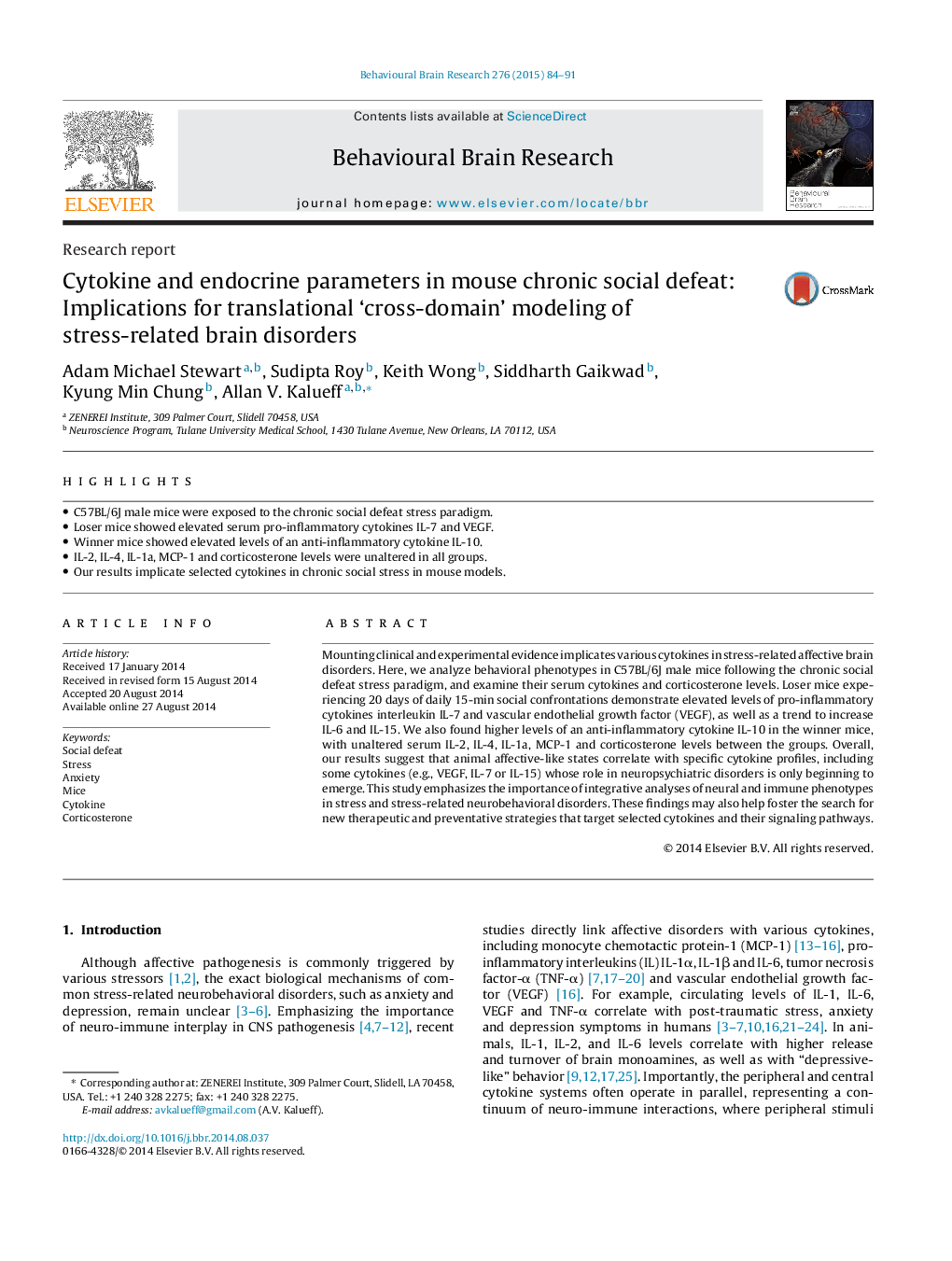| Article ID | Journal | Published Year | Pages | File Type |
|---|---|---|---|---|
| 6257432 | Behavioural Brain Research | 2015 | 8 Pages |
â¢C57BL/6J male mice were exposed to the chronic social defeat stress paradigm.â¢Loser mice showed elevated serum pro-inflammatory cytokines IL-7 and VEGF.â¢Winner mice showed elevated levels of an anti-inflammatory cytokine IL-10.â¢IL-2, IL-4, IL-1a, MCP-1 and corticosterone levels were unaltered in all groups.â¢Our results implicate selected cytokines in chronic social stress in mouse models.
Mounting clinical and experimental evidence implicates various cytokines in stress-related affective brain disorders. Here, we analyze behavioral phenotypes in C57BL/6J male mice following the chronic social defeat stress paradigm, and examine their serum cytokines and corticosterone levels. Loser mice experiencing 20 days of daily 15-min social confrontations demonstrate elevated levels of pro-inflammatory cytokines interleukin IL-7 and vascular endothelial growth factor (VEGF), as well as a trend to increase IL-6 and IL-15. We also found higher levels of an anti-inflammatory cytokine IL-10 in the winner mice, with unaltered serum IL-2, IL-4, IL-1a, MCP-1 and corticosterone levels between the groups. Overall, our results suggest that animal affective-like states correlate with specific cytokine profiles, including some cytokines (e.g., VEGF, IL-7 or IL-15) whose role in neuropsychiatric disorders is only beginning to emerge. This study emphasizes the importance of integrative analyses of neural and immune phenotypes in stress and stress-related neurobehavioral disorders. These findings may also help foster the search for new therapeutic and preventative strategies that target selected cytokines and their signaling pathways.
